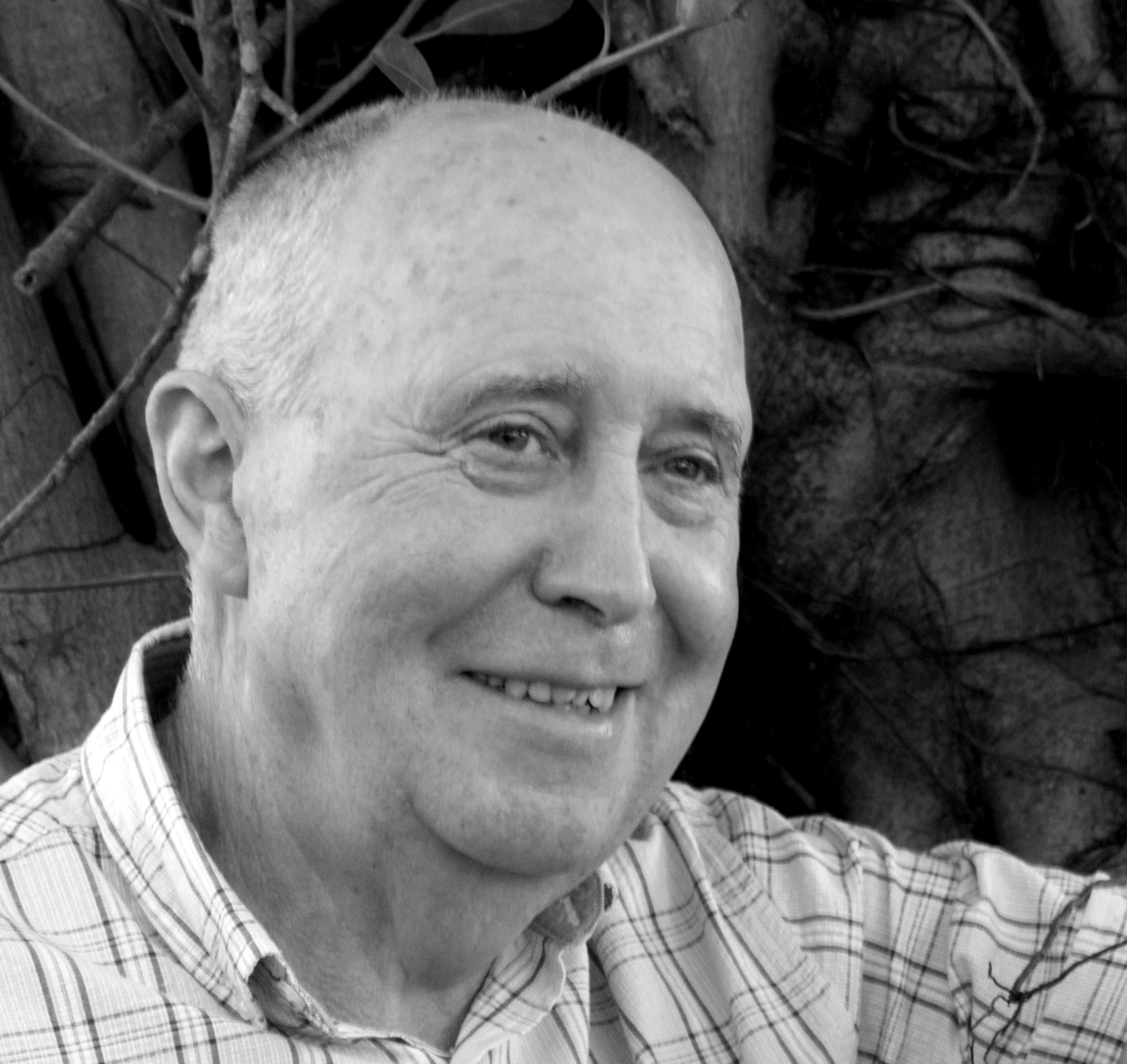Rethabile Masilo (author of Waslap and winner of the 2016 Glenna Luschel Prize for African Poetry)
Harry Owen’s poems get to be blunt understandings of us, of nature, and of feelings, whenever the writer holds each by the handle and uses its cutting edge to skin confusion off and share shocks with us.
Each poem is a surprise. Owen’s tree “looks like a haunting” (from ‘Bush Orange’) because, when he’s done with it, it becomes a haunting. I can imagine him holding the pen of his knife by the blade to club poachers with the blunt end, cutting himself in the process; because his voice does become nature, in beauty and in distress.
I suppose many good poems come from some deep sense of hurt, if not from a joy that is similarly profound. In the end, Owen has gathered ache and cheer from diverse encounters with life and painted them on our walls; and he has succeeded. This book is a triumph in using projectors of the mind to cull images for us on those walls.

Stuart A. Paterson(award-winning Scottish poet, author of Borderlines and Aye)
Reading through The Cull, I’m reminded of the title of one of Harry Owen’s previous fine collections, The Music of Ourselves. Within these 80-odd pages I’ve found much music not just of humans but of the natural world he so clearly relishes engaging with.
This is a poetry unafraid to care but also to declare & challenge, as good poetry should. It despairs of the very impact humans can have on the world while mourning our short time upon it, as individuals. Owen states that “Long deaths and agonies never delighted./But love did, love did. Remember this” (‘Codicil’). Wise words which don’t preach but offer advice & truth.
This is also a poetry which loves language, rejoices in the unexpected or unusual at times, as in wood “sharp as a shattered femur” (‘Polling Day’) & “a smudge of gulls” (‘Network Error’). His frustration at the horrors caused by politics & beliefs is poignantly relayed in the powerful ‘Children of Israel’. Good poetry shouldn’t always be easy to read, as Owen proves in this & other poems such as ‘Looking East’ & ‘Unhinged at Chintsa’ where he tellingly ends with the lines “Suddenly the whole bright world is unhinged./It needs fixing.” Owen is aware that poetry isn’t that fixer but it doesn’t stop him trying.
In ‘Say Something’, one of the book’s most arresting pieces, he says plenty about everything in the world which angers & saddens him. He says it in such a way that it’ll anger & sadden you too, such is its power.
Here is a poet not at the height of his powers quite yet but climbing the steepest slopes to the summit with grace, eloquence & passion. The fact that his journey is ongoing ought to gladden readers in both his native UK & his adopted South Africa, & it’s a journey that ought to be broadcast from the literary rooftops.





